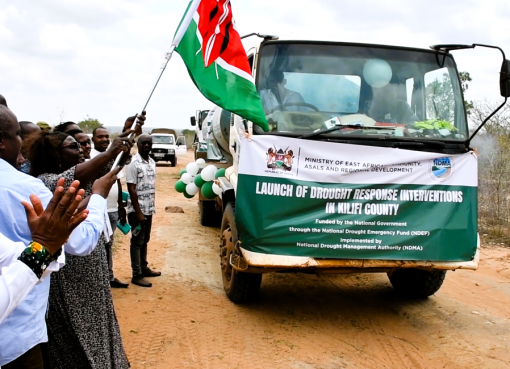At least 43 out of 1,000 infants born in Murang’a County do not survive their first year, a report by the Kenya National Demographic Survey has revealed.
This under-five mortality rate is attributed to factors such as neonatal infections, complications during deliveries, and low birth weight.
The Deputy Director of Health at the Murang’a Level 5 Hospital Dr. Kairo Kimende noted that premature births can also contribute to these deaths.
He noted that premature births are highly attributed to a lack of prenatal care visits, which often prevents early detection and management of complications during pregnancy.
Kimende, speaking during celebrations to mark World Prematurity Day at the county referral hospital on Monday, cautioned pregnant women against abusing drugs, saying that substance and alcohol abuse puts women at risk of having premature deliveries.
“Women who consume alcohol and smoke routinely are likely to face a risk of premature deliveries. Pregnant women should at least visit health facilities eight times for prenatal care for the management and early detection of complications,” he added.
Kimende further stated that twins and triplets occupy a bigger space in the abdomen, resulting in pressure and risk of early delivery.
Florence Wanjiru, a mother of triplets who were born prematurely at the Murang’a Level 5 Hospital with 1400, 1300, and 1200 grams in 2019, said she learned that having a twin or triplet can lead to premature births during her clinic visits.
Wanjiru noted regular prenatal clinics helped her to deliver her triplets safely urging expectant mothers to take prenatal care with seriousness.
On her part, Irene Mucheru, the Child Coordinator for Children Services in Murang’a County, discouraged the overuse of antibiotics in managing infections among newborns.
She warned that improper use of antibiotics can lead to drug resistance, complicating treatment in future infections.
“Among the contributors to the mortality rate in newborns, whether born before time or not, is infections, and there is a lot of antibiotic use in that age to manage the infections.
“Medical professionals should focus on adhering to the correct dosages so as to protect a child from developing antimicrobial resistance,” She said.
To increase the chances of survival for children born below 2.5 kilos, Mucheru advocated for Kangaroo Mother Care (KMC).
In this practice, the baby is held skin-to-skin with the mother to provide warmth and promote bonding.
She explained that any stable newborn, whether preterm or full-term but underweight, should be placed on KMC rather than occupying space in neonatal units unnecessarily.
“If the child can feed and is stable, KMC should be practiced to decongest the neonatal units and reserve critical resources like machines for cases that truly require them,” added Mucheru.
By Bernard Munyao and Anjilwa Francis





